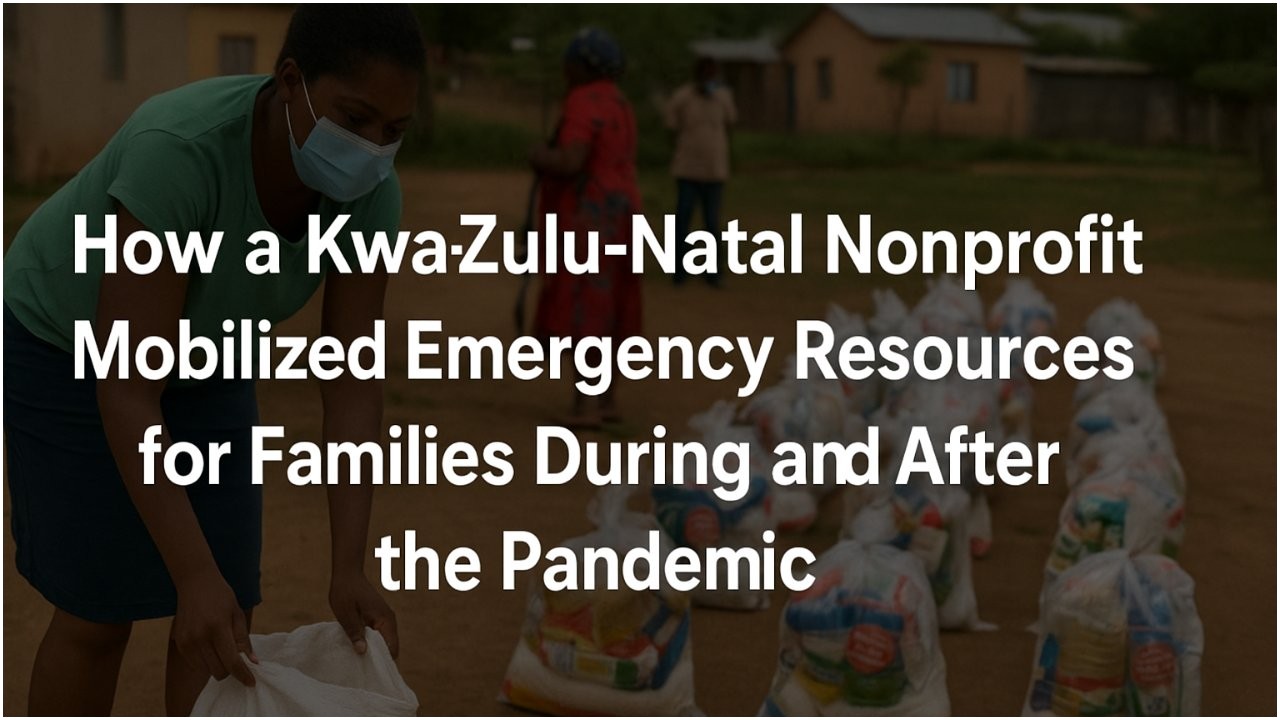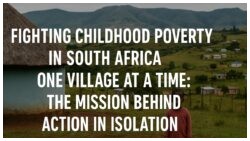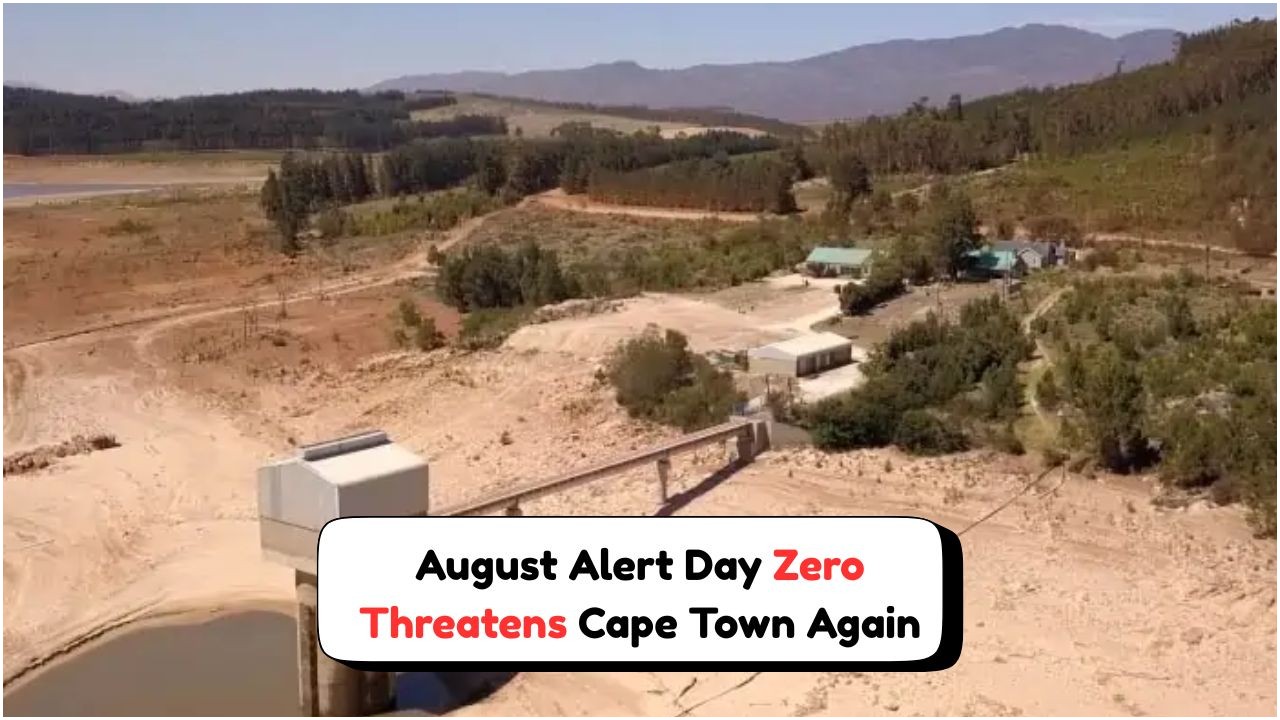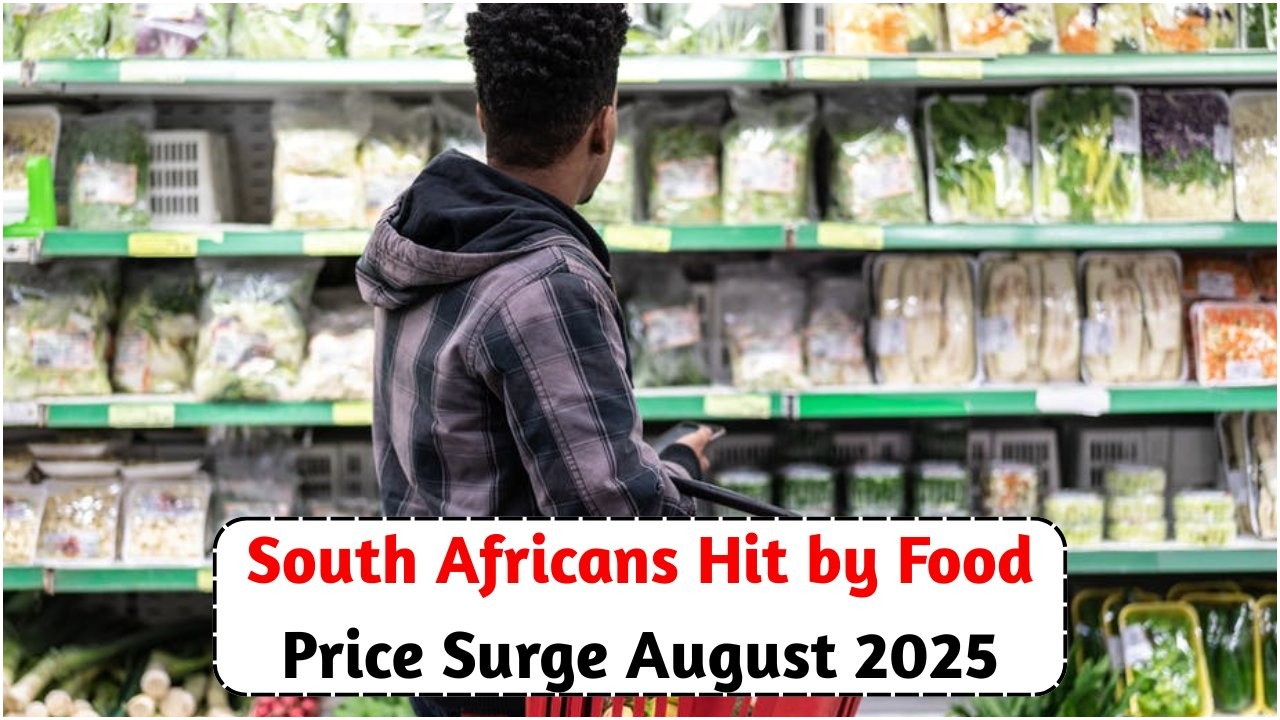Mobilized Emergency Resources – In the heart of South Africa’s KwaZulu-Natal province, one nonprofit organization emerged as a beacon of hope during the COVID-19 pandemic. As lockdowns tightened and economic activity slowed, families across KZN were hit hard — with food insecurity, job losses, and mental health challenges rising sharply. While government aid was crucial, it was often delayed or insufficient. That’s when this community-driven nonprofit stepped in, launching a rapid-response effort to deliver food parcels, provide healthcare access, and create long-term recovery plans for vulnerable households. The pandemic exposed deep-rooted inequalities, particularly in rural and peri-urban regions of KwaZulu-Natal. Many families, already surviving on modest incomes or social grants, found themselves plunged into desperation. Schools closed, children went hungry, and healthcare systems buckled under pressure. But within weeks of the national lockdown in March 2020, the KwaZulu-Natal-based nonprofit launched emergency operations using donations, partnerships with private and public sectors, and hundreds of local volunteers. This article explores how the nonprofit — which prefers to remain unnamed for security and modesty reasons — implemented its emergency resource mobilization strategy. It breaks down the types of aid provided, collaborative networks built, and how the organization sustained its work post-pandemic. The story is not just about survival, but about resilience, community leadership, and rebuilding lives from the ground up.
Emergency Response: Immediate Relief During Lockdown
Within the first month of lockdown, the nonprofit had already rolled out several critical services for communities in need.
- Distributed over 100,000 food parcels across rural KZN
- Provided hygiene kits including soap, sanitizers, and sanitary pads
- Created mobile clinics to serve COVID-19 patients and test communities
- Built isolation units in schools and community halls
- Launched hotline for mental health support
- Provided PPE kits to local healthcare workers
- Partnered with local taxi associations to transport essential goods
Collaborations with Government and Private Sector
To scale its efforts, the nonprofit formed strategic partnerships with several institutions.
- Worked with the Department of Social Development for permit clearance
- Partnered with supermarkets for bulk food supplies at discounted rates
- Received donations of fuel and vehicles from local businesses
- Collaborated with health departments to train volunteer caregivers
- Partnered with telecommunications companies to set up free helplines
- Received bulk donations from corporates like Woolworths and Pick n Pay
- Worked with churches and mosques to identify vulnerable families
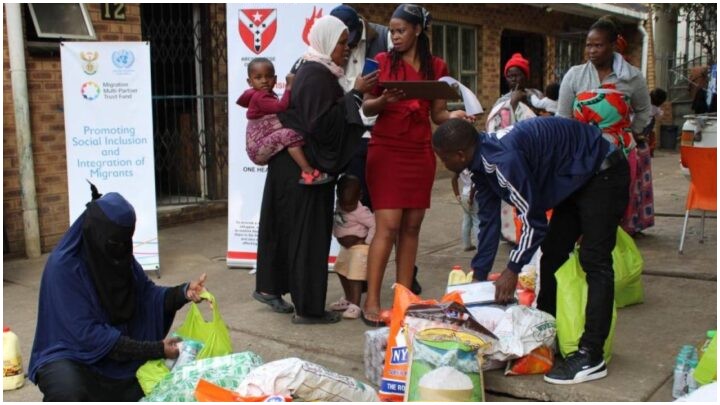
Types of Emergency Aid Delivered
Different forms of aid were tailored to meet various urgent needs during the crisis.
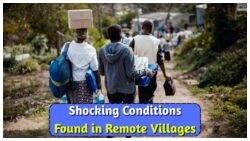 Grassroots Relief That Matters: Reaching Forgotten Villages With Emergency Aid and Compassion
Grassroots Relief That Matters: Reaching Forgotten Villages With Emergency Aid and Compassion
- Food security: Meal kits, food parcels, nutrition packs for children
- Healthcare: First-aid, COVID-19 testing, medicine delivery
- Mental Health: Phone-based counseling, referral to social workers
- Sanitation: Portable toilets, hand-washing stations, clean water tanks
- Housing: Temporary shelter for evicted or homeless families
- Education: Learning material packs, devices for online learning
- Transport: Ambulance-like services for emergencies and chronic patients
Post-Pandemic Support: Long-Term Recovery Programs
Once lockdowns eased, the nonprofit shifted from emergency relief to recovery.
- Implemented job-readiness training for unemployed youth
- Created a food garden network to promote self-reliance
- Started digital skills workshops for mothers and caregivers
- Launched trauma support circles for grieving families
- Facilitated mobile document services for lost IDs, birth certificates
- Partnered with banks to educate on micro-finance and savings
- Created mentorship programs for orphaned and vulnerable children
Key Challenges Faced and Overcome
Operating in a crisis came with a unique set of logistical and operational hurdles.
- Roadblocks during hard lockdown restricted travel
- Misinformation and vaccine hesitancy in rural areas
- Shortage of volunteers during COVID-19 surges
- High demand outpacing limited resources
- Threats from criminal groups demanding a share of aid
- Breakdown of communication networks during load shedding
- Long waiting times for government documentation and permits
Real Impact on KwaZulu-Natal Communities
The organization’s impact is measurable in both numbers and human stories.
- 145,000+ individuals supported with essential services
- 3,200 children received learning kits and nutrition packs
- 850 women enrolled in upskilling programs
- 29 rural clinics supported with resources
- 12 mobile help units set up across districts
- Over 500 volunteers trained and mobilized
- 9 districts in KZN reached during peak pandemic months
Beneficiary Testimonials
- “They brought food when my children hadn’t eaten in two days.” – Mother of three, Ulundi
- “I got my ID replaced through their help, now I receive my SASSA grant again.” – Elderly woman, eThekwini
- “Their workshops gave me skills to start my own online beadwork shop.” – Youth participant, Pietermaritzburg
Resource Allocation: How Funds and Goods Were Managed
Transparency and accountability were central to the nonprofit’s success.
| Resource Type | Quantity Distributed | Source of Donation | Area of Use |
|---|---|---|---|
| Food Parcels | 100,000+ | Corporate & NGO partners | Rural households |
| PPE Kits | 30,000 | Health Department | Clinics, schools |
| Hygiene Supplies | 75,000 units | Community donations | Families and shelters |
| Fuel & Transport | 40 vehicles + fuel | Local taxi associations | Deliveries, transport services |
| Counseling Hours | 6,500 hours | Volunteer psychologists | Phone-based support |
| Medical Supplies | 12,000 units | Private hospitals | Mobile health units |
| Learning Devices | 1,800 devices | Tech firms, donors | Remote education access |
Departmental Contacts and Support Networks
Families seeking ongoing support were encouraged to reach out to these partner departments:
| Department/Partner | Service Provided | Contact Information |
|---|---|---|
| Department of Social Development | Food relief and permit coordination | 0800 60 10 11 / www.dsd.gov.za |
| Department of Health (KZN) | Mobile clinics and PPE distribution | 033 395 2009 / www.kznhealth.gov.za |
| South African Social Security Agency (SASSA) | Grant recovery, child support | 0800 60 10 11 / www.sassa.gov.za |
| Local Municipal Offices | Housing and sanitation support | Varies by district – Check local site |
| Nonprofit’s Helpline | Mental health and aid support | 0800 111 235 |
| Department of Home Affairs | Lost ID and birth certificate assistance | 0800 60 11 90 / www.dha.gov.za |
| Youth Empowerment Centers | Skills training and job readiness | Visit www.nyda.gov.za |
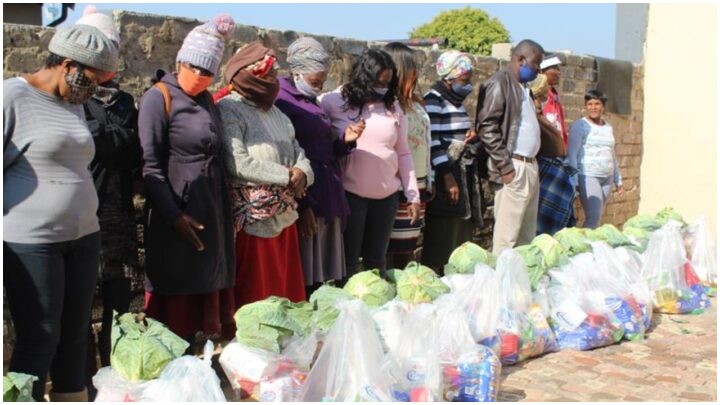
Lessons for Future Crisis Response Models
This KwaZulu-Natal nonprofit’s approach now serves as a model for grassroots emergency response. Key lessons learned include:
- Community-led initiatives are faster and more trusted than top-down models
- Existing relationships with religious and local leaders enable rapid coordination
- Transparency in donation use builds long-term trust and repeat support
- Integrating mental health and trauma services into aid programs is essential
- Building resilience requires shifting from relief to development quickly
- Mobile services (medical, documentation) are critical in rural areas
- Creating skills and livelihood programs can reverse long-term economic damage
The pandemic revealed South Africa’s vulnerabilities — but also its strength in community, leadership, and resilience. What started as a temporary emergency effort evolved into a long-term network of care, one that continues to rebuild KwaZulu-Natal, one family at a time.
FAQs
1. How can families in KZN still get help from this nonprofit?
They can call the helpline or visit partner department offices listed above.
2. Is this nonprofit still offering food aid?
Yes, food gardens and support parcels are still distributed in limited areas.
3. Can volunteers still sign up to help?
Yes, the nonprofit welcomes volunteers, especially in youth development and logistics.
4. How was the nonprofit funded during the pandemic?
Through private donors, corporate sponsors, and government collaborations.
5. What long-term services are being offered post-pandemic?
Job training, education support, trauma care, and mobile documentation services.
